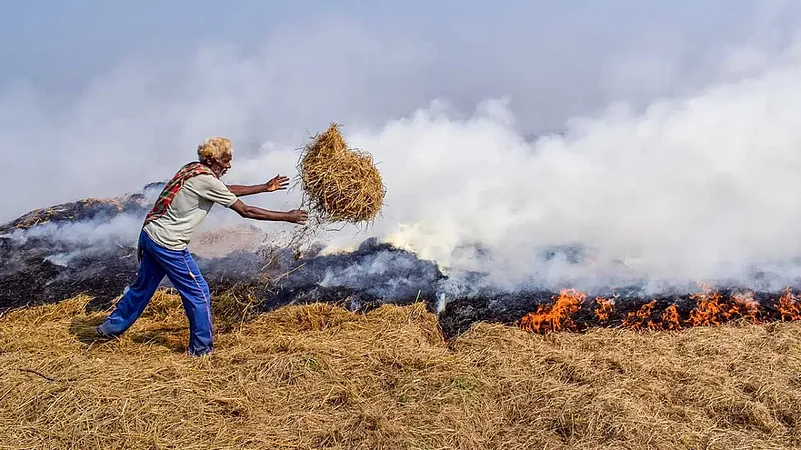The time to act is now.
In short, this was the message the Intergovernmental Panel on Climate Change (IPCC) gave in its final report earlier this year. The IPCC report, the final of its six reports over eight years, is likely the final warning to the humanity to mend its ways. If not, the endgame is near.
To prevent entering the endgame, the world would have to cut carbon emissions by two-third by 2035, according to the IPCC. "Humanity is on thin ice — and that ice is melting fast. Our world needs climate action on all fronts — everything, everywhere, all at once," said United Nations (UN) Secretary-General Antonio Guterres at the time the report came out.
Guterres pressed on the world to accelerate the reduction of carbon emissions, emphasising that the industrialised and developed nations should do more. While climate change has worldwide impacts, the impact is much more for the developing world and the poor and marginalised communities.
Even though much of the developed West makes climate a key talking point, it lacks in proportionate action as climate financing remains a sore point between the developing and developed world. The developing world says that as the developed West has been the historic polluter, it should also pay more now.
At Outlook, environment and climate change have been an area of focus for us in light of the importance of the subject. In our June 11, 2023 issue, we feature eight stories that address the climate change and explore the solutions to mitigate the effects.
The focus of the issue remains on one the most pressing concerns with regards to sustainability — plastic. It's everywhere from our writing desks to our kitchens to even our bodies. A 2021 study found that babies had 15 times more microplastics in their bodies than adults.
"The fight against plastic pollution is a fight for our future—and it is a battle we can’t afford to lose. The need of the hour is to do whatever it takes to win for the health of people and the planet," notes Shailaja Tripathi in an article.
In her column, Shalini Goyal Bhalla laid out the approach to recast the plastic industry to address the plastic problem.
"This approach supports the concept of cradle to cradle manufacturing, where materials are designed to be recycled or returned to the environment without causing harm. Biodegradable plastics can be composted along with organic waste, such as food scraps and yard trimmings. The resulting compost can then be used in agriculture or horticulture, closing the loop by returning the biodegradable plastics to the soil and supporting the growth of new plants," writes Bhalla, while explaining the concept of circular economy.
In his column, Hitesh Vaidya highlights the importance of innovation and adapting innovations to the local conditions to address the issue of plastic. With such eight pieces, the issue highlights the gravity of the situation and shows a range of solutions and approaches.
Beyond plastics and the current issue, Outlook has frequently reported on the environment. We have reported what the UN reports have said about India and how the melting of glaciers affects India and have reported on the impact of climate change on India's food security.
From Himachal Pradesh, Ashwani Sharma reported how the climate change is pushing the state's apple cultivation to higher altitudes. From Western Uttar Pradesh, Madhur Sharma reported how premature warm temperature and unseasonal rains harmed the crops in the region.
From West Bengal, Snigdhendu Bhattacharya reported how a disaster is playing out in the Sundarbans at many levels. From Goa, Paul Fernandes wrote about the ills of global warming and unabated construction leading to concrete jungles.
In an interview with Outlook, naturalist and farm- and animal-welfare advocate Philip Lymbery highlighted the importance of soil and how human activities have driven the soil to such a state that the UN has warned that we might just have soil worth 60 harvests.
What would happen if we don't mend our ways? Lymbery said it would be game over. He said, "According to the UN, if we carry on as we are, there could be just 60 harvests left in the world’s soils. And then what? No soil, no food, game over."
This World Environment Day, we feature stories that highlight the gravity of the situation and also offer solutions. The time to prevent irreparable damage of climate change is not yet over and the 60 harvests are also not yet over. There is time, but not too much.
The time to act is now.






















